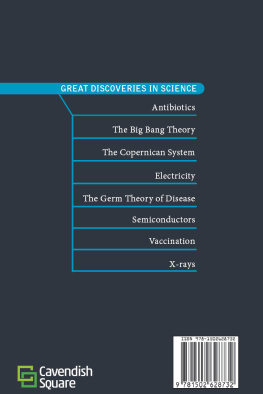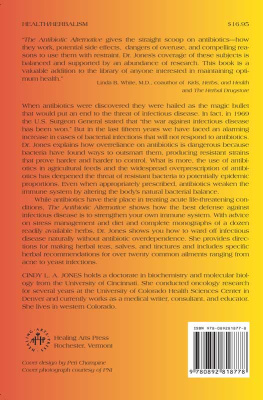Scott H. Podolsky - The Antibiotic Era: Reform, Resistance, and the Pursuit of a Rational Therapeutics
Here you can read online Scott H. Podolsky - The Antibiotic Era: Reform, Resistance, and the Pursuit of a Rational Therapeutics full text of the book (entire story) in english for free. Download pdf and epub, get meaning, cover and reviews about this ebook. year: 2014, publisher: Johns Hopkins University Press, genre: Romance novel. Description of the work, (preface) as well as reviews are available. Best literature library LitArk.com created for fans of good reading and offers a wide selection of genres:
Romance novel
Science fiction
Adventure
Detective
Science
History
Home and family
Prose
Art
Politics
Computer
Non-fiction
Religion
Business
Children
Humor
Choose a favorite category and find really read worthwhile books. Enjoy immersion in the world of imagination, feel the emotions of the characters or learn something new for yourself, make an fascinating discovery.

- Book:The Antibiotic Era: Reform, Resistance, and the Pursuit of a Rational Therapeutics
- Author:
- Publisher:Johns Hopkins University Press
- Genre:
- Year:2014
- Rating:3 / 5
- Favourites:Add to favourites
- Your mark:
The Antibiotic Era: Reform, Resistance, and the Pursuit of a Rational Therapeutics: summary, description and annotation
We offer to read an annotation, description, summary or preface (depends on what the author of the book "The Antibiotic Era: Reform, Resistance, and the Pursuit of a Rational Therapeutics" wrote himself). If you haven't found the necessary information about the book — write in the comments, we will try to find it.
In The Antibiotic Era, physician-historian Scott H. Podolsky narrates the far-reaching history of antibiotics, focusing particularly on reform efforts that attempted to fundamentally change how antibiotics are developed and prescribed. This sweeping chronicle reveals the struggles faced by crusading reformers from the 1940s onward as they advocated for a rational therapeutics at the crowded intersection of bugs and drugs, patients and doctors, industry and medical academia, and government and the media.
During the postWorld War II wonder drug revolution, antibiotics were viewed as a panacea for mastering infectious disease. But from the beginning, critics raised concerns about irrational usage and overprescription. The first generation of antibiotic reformers focused on regulating the drug industry. The reforms they set in motion included the adoption of controlled clinical trials as the ultimate arbiters of therapeutic efficacy, the passage of the Kefauver-Harris amendments mandating proof of drug efficacy via well-controlled studies, and the empowering of the Food and Drug Administration to remove inefficacious drugs from the market. Despite such victories, no entity was empowered to rein in physicians who inappropriately prescribed, or overly prescribed, approved drugs.
Now, in an era of emerging bugs and receding drugs, discussions of antibiotic resistance focus on the need to develop novel antibiotics and the need for more appropriate prescription practices in the face of pharmaceutical marketing, pressure from patients, and the structural constraints that impede rational delivery of antibiotics worldwide. Concerns about the enduring utility of antibioticsindeed, about a post-antibiotic eraare widespread, as evidenced by reports from the Centers for Disease Control and Prevention, academia, and popular media alike. Only by understanding the historical forces that have shaped our current situation, Podolsky argues, can we properly understand and frame our choices moving forward.
Scott H. Podolsky: author's other books
Who wrote The Antibiotic Era: Reform, Resistance, and the Pursuit of a Rational Therapeutics? Find out the surname, the name of the author of the book and a list of all author's works by series.




